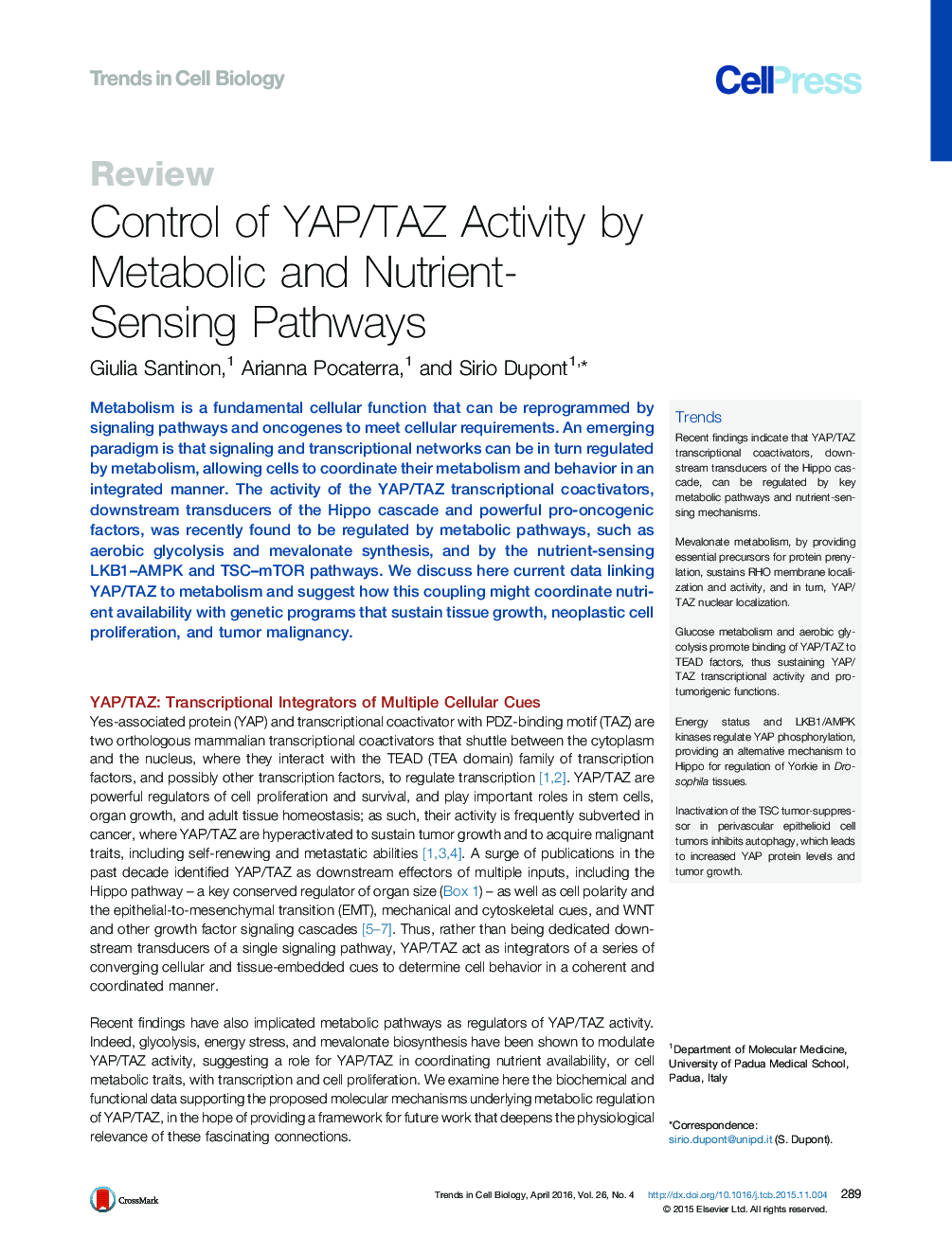| Article ID | Journal | Published Year | Pages | File Type |
|---|---|---|---|---|
| 2204270 | Trends in Cell Biology | 2016 | 11 Pages |
Metabolism is a fundamental cellular function that can be reprogrammed by signaling pathways and oncogenes to meet cellular requirements. An emerging paradigm is that signaling and transcriptional networks can be in turn regulated by metabolism, allowing cells to coordinate their metabolism and behavior in an integrated manner. The activity of the YAP/TAZ transcriptional coactivators, downstream transducers of the Hippo cascade and powerful pro-oncogenic factors, was recently found to be regulated by metabolic pathways, such as aerobic glycolysis and mevalonate synthesis, and by the nutrient-sensing LKB1–AMPK and TSC–mTOR pathways. We discuss here current data linking YAP/TAZ to metabolism and suggest how this coupling might coordinate nutrient availability with genetic programs that sustain tissue growth, neoplastic cell proliferation, and tumor malignancy.
TrendsRecent findings indicate that YAP/TAZ transcriptional coactivators, downstream transducers of the Hippo cascade, can be regulated by key metabolic pathways and nutrient-sensing mechanisms.Mevalonate metabolism, by providing essential precursors for protein prenylation, sustains RHO membrane localization and activity, and in turn, YAP/TAZ nuclear localization.Glucose metabolism and aerobic glycolysis promote binding of YAP/TAZ to TEAD factors, thus sustaining YAP/TAZ transcriptional activity and pro-tumorigenic functions.Energy status and LKB1/AMPK kinases regulate YAP phosphorylation, providing an alternative mechanism to Hippo for regulation of Yorkie in Drosophila tissues.Inactivation of the TSC tumor-suppressor in perivascular epithelioid cell tumors inhibits autophagy, which leads to increased YAP protein levels and tumor growth.
